What is Acute Lymphoblastic Leukemia (ALL)?
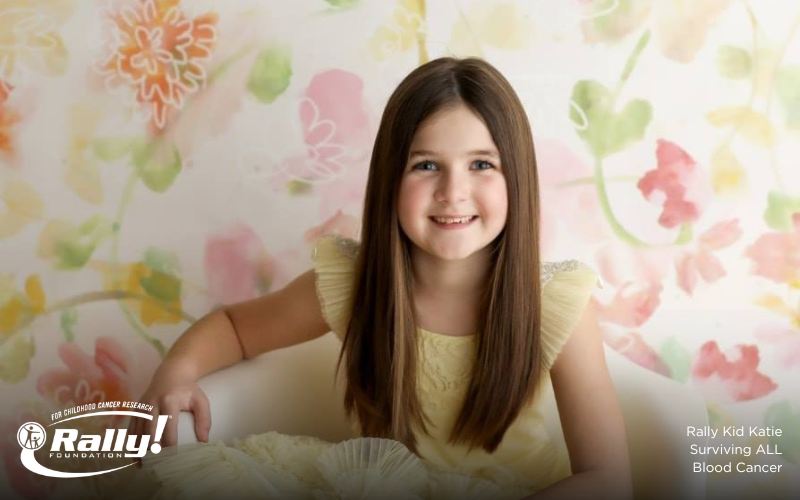
Rally Kid Katie was diagnosed with ALL at age two. She fought through liver failure during her cancer treatments, but she is now happy and healthy.
Acute lymphoblastic leukemia, also called acute lymphocytic leukemia, or ALL for short, is a type of blood cancer that causes bone marrow to overproduce a type of white blood cells called lymphoblasts. ALL is the most common type of cancer that affects kids, accounting for roughly 30% of all cases of childhood cancer.
Lymphoblasts are immature white blood cells that are responsible for identifying and destroying foreign invaders like bacteria and viruses. When someone has ALL, the bone marrow produces too many lymphoblasts that do not mature properly. These immature lymphoblasts prevent normal lymphocytes from forming and are simultaneously unable to fight infections in the body.
Signs and Symptoms of Acute Lymphoblastic Leukemia
The fact that ALL affects the body’s defense system means that the disease will likely cause a lot of problems for patients before being diagnosed. These include symptoms like anemia, bruising or bleeding, fevers and infections, joint pain, swollen lymph nodes and more.
“Children with ALL often present with fever, fatigue, easy bruising and/or bone pain,” explained Rally-funded Researcher, Dr. Sarah Tasian, Attending Physician in the Division of Oncology and Assistant Professor of Pediatrics at Children’s Hospital of Philadelphia and University of Pennsylvania’s Perelman School of Medicine. “Although some children with ALL surprisingly present with minimal symptoms.”
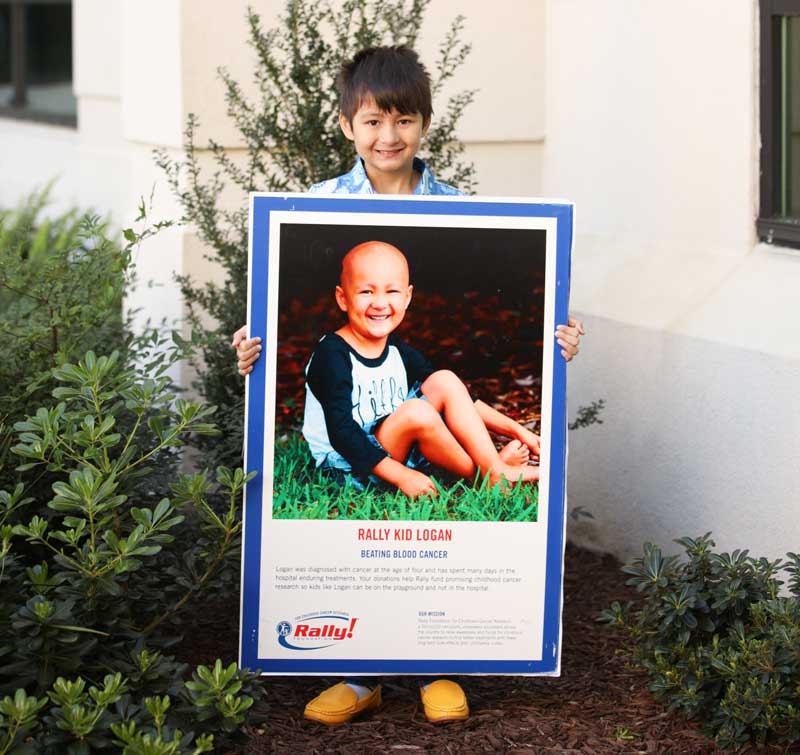
Rally Kid Logan fought ALL for over three years. He is now cancer free.
Rally Kid Logan’s only symptom was a low-grade fever that he had for about a week. Logan’s family took him to the pediatrician, who discovered that he was very neutropenic, meaning his white blood cell count was extremely low. Logan was admitted to the hospital, where, after two bone marrow biopsies, he was diagnosed with ALL.
Rally Kid Briley also had a prolonged fever, along with constant fatigue. Briley had a congenital heart defect that was repaired when she was four months old, so her parents took her to the cardiologist to make sure everything was okay. While her heart was fine, her labs showed a high white blood cell count, indicating that she could have leukemia. On April 11, 2018, Briley was diagnosed with ALL.
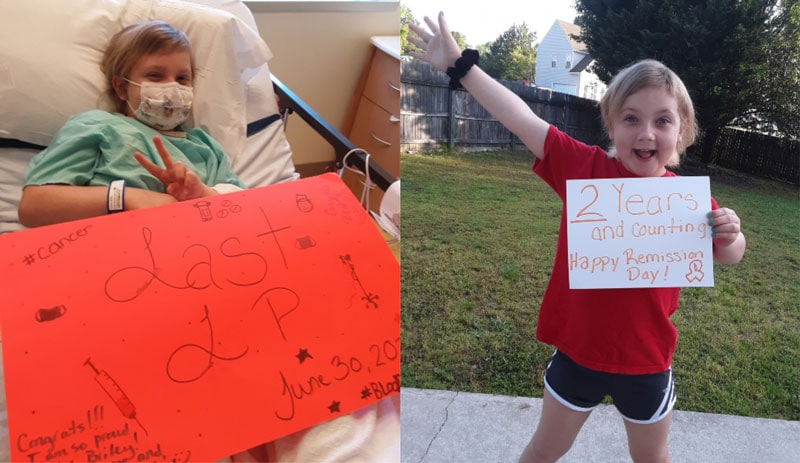
Rally Kid Briley is a brave girl who has endured much in her young life, including a congenital heart defect and childhood cancer.
Acute Lymphoblastic Leukemia Prognosis and Treatment
Today, ALL has a very high cure rate, thanks to more than 50 years of clinical trials and research. Approximately 98% of children diagnosed with ALL go into remission after a few weeks of treatment, and about 90% of those kids will be cured with prolonged treatment.
Treatment for ALL typically involves a combination of chemotherapy, blood transfusions, radiation therapy and blood and/or bone marrow transplants. There are typically four separate phases of treatment for ALL:
- Induction therapy is the first phase that works to destroy leukemia cells in the blood and bone marrow, restoring the production of normal blood cells.
- Consolidation therapy, or post-remission therapy, kills any remaining leukemia in other areas of the body.
- Maintenance therapy prevents leukemia cells from re-growing and is administered in low doses over a long period of time.
- Preventive treatment in the final phase and is administered via injections to the spinal cord in order to destroy leukemia cells in the nervous system.
ALL treatment can last up to 2.5 years for girls and up to 3.5 years for boys. Unfortunately, however, these treatments can be incredibly harsh for young patients who often experience side effects that are worse than the disease itself. Common side effects of chemo, for example, include not just hair loss but skin sores, digestion problems, repeated hospitalizations and a host of other complications that can be life-threatening.
“While our chemotherapy regimens now successfully cure the majority of children with ALL, they also come at the cost of unpleasant or unexpected side effects,” Dr. Tasian said. “It would be wonderful to identify ‘Goldilocks chemotherapy’ for children that is just right—not too much and also not too little.”
Recent Advancements in Acute Lymphoblastic Leukemia Research
“[ALL] is a true success story of pediatric oncology, and it is a privilege and honor to care for these children and help them to live long and healthy lives,” shared Dr. Tasian. “Unraveling the mystery of why some children do not respond well to conventional therapy and now knowing the critical importance of leukemia-associated genetics and potential ability of targeted therapies to attack these ‘Achilles’ heels’ within ALL cells to cure more children is what excites us in the laboratory.”
While it’s reassuring to know that ALL has one of the highest cure rates of all childhood cancers, there is still much work to be done when it comes to finding treatments with fewer long-term side effects.
“I am most excited about the potential of precision medicine for children with ALL,” said Dr. Tasian, “both in terms of up-front targeted inhibitors for specific genetic subtypes that may be more effective and especially immunotherapy that may be less toxic.”
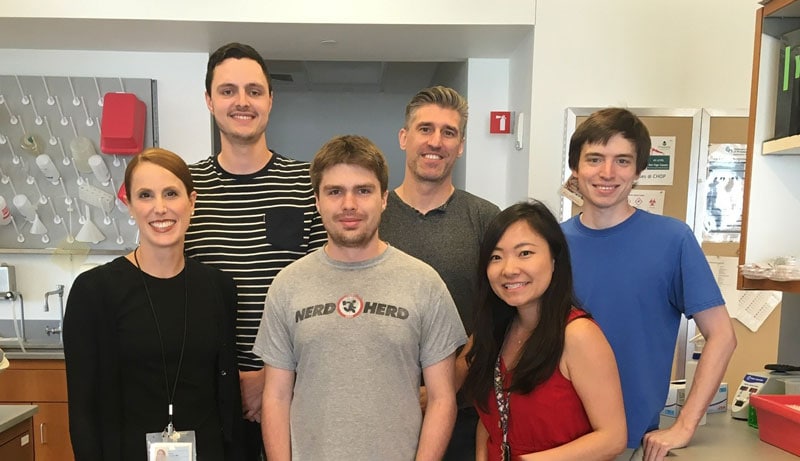
Dr. Sarah Tasian and her team in the research lab.
With the help of funding from Rally, Dr. Tasian and her team have previously made remarkable discoveries that have resulted in promising clinical trials for kids with high-risk leukemias, including some that use immunotherapy—an approach that harnesses the body’s own immune system to fight cancer.
One such immunology therapy, first developed by doctors and researchers at Children’s Hospital of Philadelphia, is known as chimeric antigen receptor (“CAR”) T-cell therapy for children with advanced ALL. The Cancer Immunotherapy team at CHOP was the first to use CAR T-cell therapy in a child with ALL and has since treated more than 200 children with this therapy. Rally Foundation was one of many organizations that helped fund this life-saving CAR T-cell research.
Join the Fight Against Acute Lymphoblastic Leukemia
With your help, we can continue to fund the best and most promising research for childhood cancers like ALL, so that one day, no child has to suffer from the debilitating effects of treatment. Want to support funding for life-saving childhood cancer research? Click the button below to make your tax-deductible donation to Rally today in honor of kids like Katie, Logan and Briley.
0 Comments
Trackbacks/Pingbacks